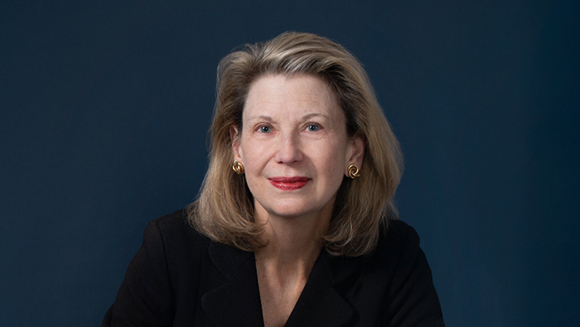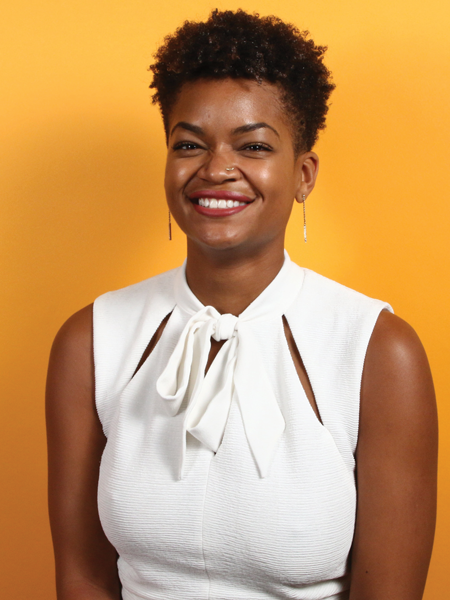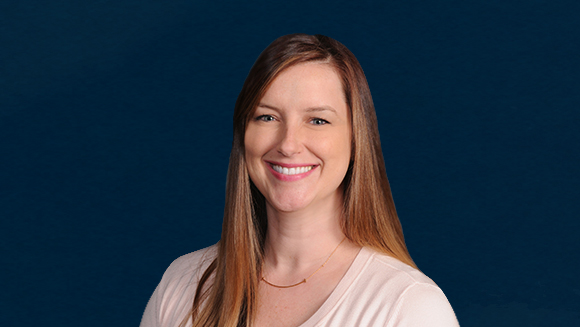In This Issue:
- Silver Lining in the Statistics: 2021 Is the Year to Unlock the Potential
- Q&A With Khadijah Robinson
- NASDAQ Makes a Move Towards Diversity in the Boardroom
- Underneath It All
- Holiday Gifting
- Opportunities
Silver Lining in the Statistics
2021 Is the Year to Unlock the Potential

The two epic crises of 2020 – the national reckoning with systemic racism and the global pandemic – have had profound and devastating consequences, disproportionately affecting the marginalized and underrepresented in our country. Female founders, especially founders of color, have always faced daunting challenges in the startup ecosystem, and the crises of 2020 only magnified those challenges.
Although it is too soon to tell the magnitude of the setbacks female founders may have suffered in 2020, here's what we do know:
- According to PitchBook data, venture funding for female founders hit a three-year low in the third quarter of 2020. That's a decrease from the 2.8% of total venture funding for female founders reported in 2019. And Black female founders were reported to receive just a fraction --.06% -- of that amount.
- A study published by Builders and Backers found that for women business owners, the CARES Act PPP loan process was a microcosm of the gender funding gap. In some cases, women did not even apply due to their own conservative tendencies and fears of being turned down. In other cases, however, they were not able to submit applications because they did not have access to lenders, received conflicting information, or could not process all the documentation in time.
- Data released by the SBA revealed that just 2% of the hundreds of billions of dollars of PPP loans went to Black-owned businesses.
So, where is the silver lining in this alarming news? The hard evidence reveals that closing this funding gap will unlock billions of dollars of value into our economy. Here is just some of the data:
- American Express's 2019 State of Women-Owned Businesses Report concludes that if revenues generated by minority women-owned firms matched the revenues currently generated by all women-owned businesses, they would add four million new jobs and $981 billion in revenue to the U.S. economy.
- A widely publicized study conducted by Boston Consulting Group and MassChallenge found that startups founded or cofounded by women generated 10% more in cumulative revenue over a five-year period.
- In The Growing Market Investors are Missing, Morgan Stanley estimates that had the number of women and minority-owned businesses and portion of their revenues matched their percentage in the labor force — 56% — then 2012 gross receipts would have increased to $6.8 trillion, suggesting a missed opportunity of up to $4.4 trillion.
- A recent analysis by the Kauffman Fellows evaluated venture-backed rounds from 2000 through 2018 and, among other things, found that diverse founding teams produce higher returns when cash is returned to investors. Historically, diverse founding teams have delivered a 3.26x median realized multiple on IPOs and acquisitions, compared to a 2.50x realized multiple for all white founding teams, representing a 30% increase.
- Pitchbook's report 2020 All In: Female Founders and CEOs in the US VC Ecosystem reveals that female-founded companies are quicker to exit (at the current rate outperforming the broader U.S. market for 10 consecutive years) and they exit at higher valuations than all U.S. companies.
To date, data like this has not had a noticeable effect on the behavior of the investors, advisors and organizations that pull the levers in the entrepreneurial ecosystem. But, the ravages the pandemic is wreaking – some of which are documented by Hello Alice and digitalundivided – act as an urgent wake-up call to pay attention, not only to the huge disparity in funding but also to the potential economic rewards that eliminating that disparity would unleash.
Our resolution for 2021 should be to unlock the potential in these underrepresented founders. Here are some keys to do just that:
- ✔ Commit to consider a meaningful number of female-founded companies in the investment process. VC funds and angel investors can commit to evaluate and consider at least 30% female founders as part of their investment process. Set a goal and then periodically audit performance against that goal by looking at the percentage of female founders with whom you had meetings and who made it into the diligence process. Accelerators and incubators can do the same. Don't have female-founded companies on your radar or in your pipeline? We can help. We can introduce you to high-potential, high-growth companies in the Project W portfolio that are founded by women who have graduated from one of our programs. And we can introduce you to our Project W partners, who similarly have deep networks of high-achieving female founders.
- ✔ Help your portfolio companies build out gender diverse teams. Investors, particularly VCs, have considerable influence over how companies in their portfolios build out their teams. You can work with the leadership teams of the companies in which you invest to encourage them to consider the importance of diversity when hiring. Take a page from Atlassian's 8-step playbook to help your portfolio companies build more diverse workforces.
- ✔ Mentor a female founder. Funds and angel groups can tap into their networks for volunteers to spend a few hours mentoring a female founder. That's what we did in June with our 1:1 With Black Founders initiative through which we paired 120+ Black founders with investors, advisors and experts in our network. That effort told us that there is an abundance of talent, ambition and ingenuity waiting to be tapped, and there is a wealth of experience and expertise eager to give back. We just needed to connect them. Read more about our initiative and learn what some of our mentees said about the difference just one mentoring session made.
- ✔ Put your purchasing power to work. Support female-founded businesses by purchasing their goods and services. Women account for 85% of all consumer purchases. If every woman (and man, too) reading this newsletter deployed purchase dollars to support female-founded businesses, the impact would be far-reaching, creating wealth for the founders and their employees. Don't know how to find women-owned businesses? There are directories like Buy Women Owned, marketplaces like The Helm, or privately curated lists like this one from Project W supporter, investor Katie Shea. And elsewhere in this newsletter we feature the founder of Nile, a platform that connects consumers with Black-owned brands.
At Project W, we are committed to making 2021 a year of meaningful progress: progress in closing the funding gap and progress in ensuring that underrepresented founders achieve their full potential. Stay tuned as we roll out some new programs and ideas over the course of the coming year. And let us hear your ideas. We are all about collaboration and eager to partner with organizations and individuals who share our goals. Together, we can accelerate progress toward the future we all envision.
Q&A With Khadijah Robinson

Harvard trained lawyer, Khadijah Robinson, has a busy practice as a litigator at a white-shoe law firm in Washington D.C., and at the same time followed her passion by founding Nile, an online platform that enables shoppers to buy from Black-owned businesses. At a time when COVID-19 has had a devastating impact on small businesses and a disproportionate effect on people of color, we asked Khadijah about her mission and how purchasing from Black-owned businesses is an investment in the future.
Q: Life as a litigator at a large corporate firm is much more than a 9 to 5 job. What motivated you to take on the challenge of founding Nile, and how have you managed the dual role of full-time lawyer and entrepreneur?
A: Some of my earlier experience as an attorney is actually what motivated me to found Nile. My law firm has a deep commitment to pro bono work, and I have been able to work on a variety of pro bono cases, including a murder trial representing a defendant who was facing life without parole. I also participated in a rotation program working full-time for six months with one of my firm's non-profit partner organizations, practicing family law. My experience with various aspects of our legal and justice system has truly opened my eyes to layers of latent racism and inequitable treatment that has been fundamentally woven into the fabric of our system at so many levels. I enjoyed legal work, but Nile is a more widespread and scalable way of addressing one of the points of inequality in our society, and it is what keeps me motivated.
Q: In addition to building a successful commercial enterprise for yourself, your employees and your investors, what other long-term goals do you have for Nile?
A: Nile's mission is even bigger than me or my team. We are building for Black entrepreneurs. We are creating a space that both values and showcases Black entrepreneurs to help them rise above the endless retail noise of the internet. Hopefully, in a society that has made Black entrepreneurship at scale exceptionally difficult, Nile will make it easier for Black founders to propel their businesses forward. My immediate goal is to shift a million dollars to Black entrepreneurs next year. My ultimate goal is to create a home for Black businesses and the entrepreneurs who run them and to shift billions of dollars away from the corporations that devalue us to those entrepreneurs who make our community amazing.
Q: Very few of us are in a position to write a four- or five-figure check to make an investment in a company. Do you see buying Black as a means of democratizing investing in Black-owned small brands?
A: I think that buying Black is only a small part of the solution. Unfortunately, there are many costs to doing business. We have seen, even with the wave of purchases that swept some small Black-owned businesses to the brink this summer with backlogs, delays, sourcing issues, and capacity limitations, that consumer purchases aren't enough. For businesses that are under-capitalized, they have to be able to both purchase the supplies needed to make and ship product and invest in the tools necessary to sell their product, such as photography, marketing, etc. Black businesses have less money, less access, fewer resources, less mentorship, smaller marketing budgets, and less help. Therefore, current initiatives to stoke spending with Black businesses must be complemented with greater attention to other factors that have limited their growth.
Q: What comes next for you and Nile?
A: Right now, we're working on building Nile 2.0, which will include an on-site marketplace and a browser extension function to get users real-time suggestions to buy Black as they shop online, no matter which sites they use. Stay tuned and sign up for our mailing list at theNileList.com so you don't miss it!
Q: What advice do you have for first-time founders who are building a company while still working at their "day job?"
A: Delegate! Sometimes it's hard to take my own advice, but it's key. You can't do it all, and you certainly can't do it alone. There is so much that you don't know, and your time is so limited that you have be able to delegate. It can be extremely hard, because your startup is like your baby, and letting someone else take care of your baby is always a struggle. But, building a scalable company is about much more than just doing everything perfectly and doing it yourself. It's about bringing together people who have a passion for what you're building and convincing your team and the world that what you're offering is worth the price.
NASDAQ Makes a Move Towards Diversity in the Boardroom
On December 1, NASDAQ proposed new listing requirements intended to increase diversity on the boards of NASDAQ-listed companies. Under the proposal, which still requires SEC approval, companies listed on the exchange would be required to have at least two diverse directors: one who self-identifies as female and one who self-identifies as an underrepresented minority or LGBTQ. And listed companies would be required to disclose board-level diversity statistics. While this falls short of the mandate the European Union is seeking – 40% women in non-executive board seats – it is an important first step toward eliminating the white male hegemony in U.S. boardrooms.
Underneath It All
Creating a Strong Brand

By Molly Klein, Director of Marketing, Davis Wright Tremaine
Just the sight of the word "marketing" can make a founder cringe. Because buried inside it are paid social, organic search, Google Ads, A/B testing, CTA, CTR, CMS, COS and about a thousand other industry terms that can make you want to run for the good-ol'-days-when-companies-just-needed-to-place-an-ad-in-the-local-newspaper hills.
Before one tackles all of those acronyms though, the foundation must be set: a brand. I'm not just talking about a logo here. Yes, your brand needs to include a look, but equally important is the messaging and tone. A strong brand increases your value, builds trust, and most importantly makes people feel something. Here are a few pointers to help you get started thinking about your brand.
Consistency
Keeping your brand visuals and messaging cohesive and finding a regular cadence to your marketing efforts is critical. Developing brand awareness takes time and a lot of sales funnel fine-tuning. You basically have to beat people over the head with your brand, but not too hard. Like a soft thump. Over and over, on a regular schedule. Consistency also builds trust, and people buy from companies they recognize.
Character
More than ever before, we are completely saturated with branding. Everything from gas pumps to elevators to our refrigerators is suggesting that we buy a certain insurance or project management software, or, like magic, the shirt we just looked at on a retailer's website. So, within that steady drumbeat of consistent marketing, you'll want a look and feel that stands out. Do competitive analyses, create buyer personas, and test, test, test.
Culture
You can't fake culture. A toxic, disorganized, or non-existent culture can become public completely unintentionally. It's something you need to be thoughtful about and get in front of early on. Having a clear understanding of a company's culture is essential to communicating the brand – a documented and thriving set of values, goals, and attitudes will help you retain the best employees, who will in turn help build a positive reputation. Check out this Harvard Business Review article on how culture and brand intersect.
Now, let me level set here. Of course, I hope that you've found a little bit of value in this piece of content, but if you're serious about creating a brand with impact and longevity, I'd recommend enlisting some help (unless, of course, you happen to be a soup-to-nuts marketing whiz, which is pretty unicorn-ish nowadays.) Working with an agency, or at least a freelancer or two, is your best bet. If hiring out just isn't in the cards right now, taking a digital marketing course (General Assembly has some great options) or reading a few industry books can certainly help. "Building a StoryBrand" by Donald Miller and "Branding: In Five and a Half Steps" by Michael Johnson are a couple of industry go-tos.
Creating a brand can feel daunting, but it can also be a ton of fun. All the feel-good stuff like mailing list subscriptions, increased website traffic, partnership requests, a sale, and a repeat sale can result from great branding. But, most important, your brand speaks to who you are and the kind of company you are building. Keep consistency, character and culture front of mind as you build your brand and the world will perceive your company through an optimal lens.
Holiday Gifting
The holidays are a great time to support women and minority-owned businesses, as well as those that give back to the community. Here are three gift guides to help you with your shopping!
- Viledge delivers curated gift boxes from Black-owned businesses
- The Davis Wright Tremaine Pro Bono & Social Impact gift guide
- The Women's Business Enterprise National Council's Women-Owned gift guide
Opportunities
- eBay Up & Running Grants
- NAACP x Bacardi Backing the B.A.R.
- Tech in Colour Funding and Resources
- Sputnik ATX Accelerator
- SXSW Pitch 2021
- LeadHERS Speedvesting
- Black Ambition Prize
